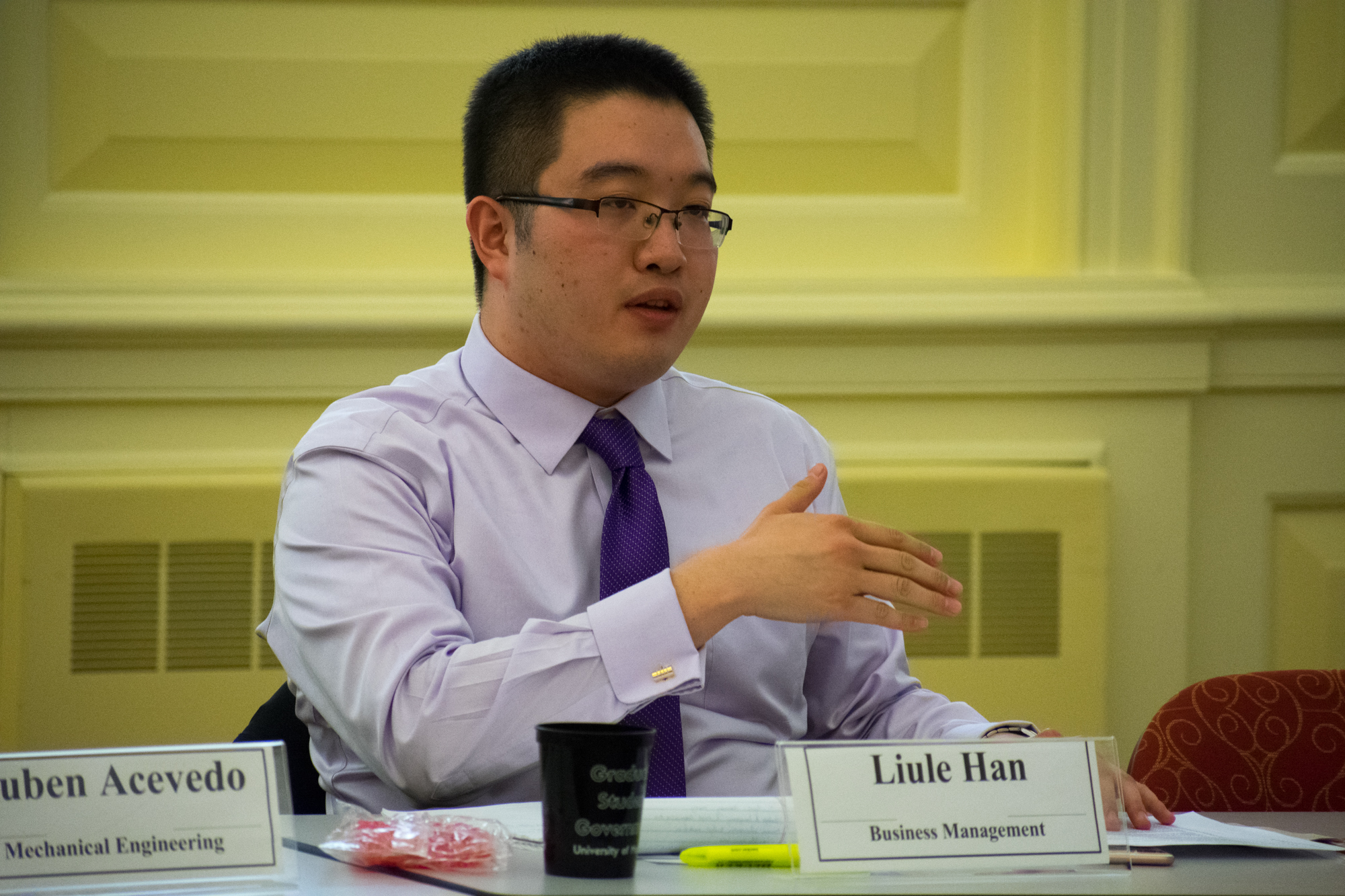The GSG voted 15-3 against a bill on Friday that would limit the portion of its budget used to pay members, as well as the pay rate of hourly staff.
The change would have placed a 60 percent cap on the fiscal year budget section allotted to paying members, and restricted the organization’s pay rate for its hourly staff to double the value of the state of Maryland’s $9.25 minimum wage.
Liule Han, who proposed the bill, said he thought the current pay for hourly staff was too expensive for the Graduate Student Government’s budget.
Han, a business and management representative, said he proposed this bill to enforce fiscal discipline in the GSG, adding that high hourly wages and long shifts contributed to budget overruns last year.
[Read more: UMD GSG launches investigation into president after noticing $30,000 budget overspending]
“I just want to make sure if we have a decrease in the budget, we can still maintain a percentage to give back directly to the students,” he said, noting this could be through GSG hosting events for students or allocating money to student organizations to help them host their own events.
This year, about 63 percent of this year’s GSG budget goes toward paying executive board members and hourly staff members, and there is currently no cap on its hourly staff’s pay rate. Budgets from the five previous fiscal years allocated about 55 percent of funds to pay stipends, salaries and hourly wages.
Financial Affairs Vice President Devin Scott said part of the reason why this percentage was lower in previous years was because the group had more money in its reserve accounts. Last semester, the GSG voted to launch an impeachment investigation into its then-president, Stephanie Cork, after discovering its fiscal 2017 budget had been overspent by about $36,000.
The group’s Budget and Finance Committee found several transactions that had been made without the assembly’s approval, including about $6,000 that was spent on a disability summit and about $12,000 that had gone toward a salary increase for the director of operations.
Cork resigned weeks after the GSG voted to launch its investigation in early November. The group voted 29-5 to impeach her the following month on charges of misrepresentation of duty and misuse of funds.
Scott said that if the proposed budget had been followed, there would not have been overspending. He said GSG is working with a “skeleton crew” because of the current lack of funds — the group held off hiring a webmaster and a coordinator to help plan Graduate Research Appreciation Day, an annual conference where graduate students can share their research with peers and faculty.
“Everyone’s really been doing a lot of extra work, and to cut [the budget percent] back to below what austerity measures are seems misguided to me,” Scott said. “It hurts our flexibility and it hurts our ability to do the good work of GSG.”
Scott also said limiting the hourly pay rate to double Maryland’s minimum wage would make the GSG “guilty of the same labor practices that we’re fighting against at the university level,” especially because many of the hourly staff positions are skilled labor.
“I think people should be compensated fairly for their work, and setting arbitrary limits doesn’t help us do that,” he said.
The bill would have also required the group’s budget to be posted on the GSG’s website before the start of each fiscal year and regularly updated with any revisions throughout the year.
[Read more: Former UMD GSG President Stephanie Cork impeached on charges of misusing funds]
“It is our duty to make [the budget] more transparent and available to the people,” Han said. “It is necessary to post the budget no matter whether people will read it or not.”
But history representative Guy Aldridge said it would be unrealistic to expect someone to regularly update the budget, adding that it is “good enough” to have some budgetary information available and to provide an email address that people can reach out to if they have questions.
“We would have somewhere the most up-to-date budget information,” Aldridge said. “It’s not like every organization in the United States posts their budget online.”
Han said that he will use the feedback he received from his fellow GSG members to improve the bill and will propose the amended version at the next meeting on May 4, which will be his last before he graduates.



